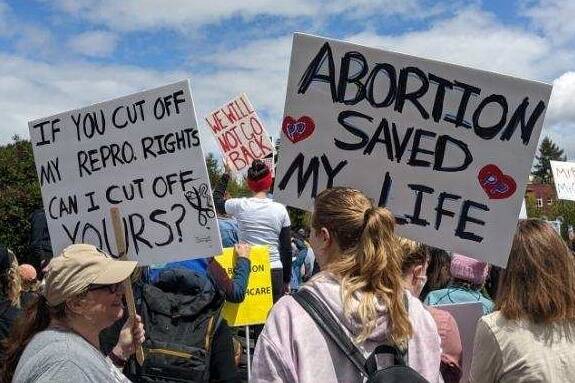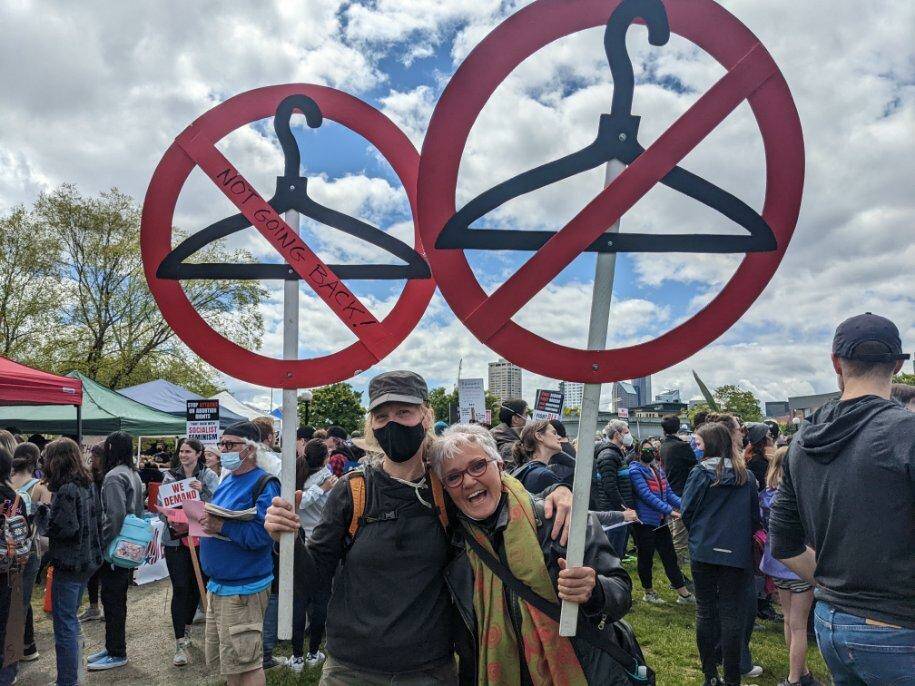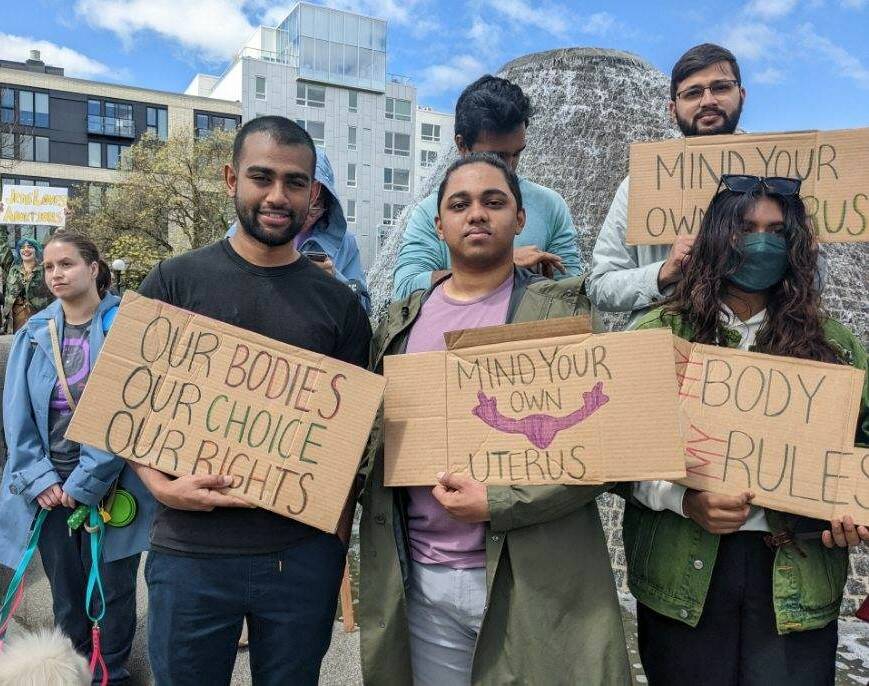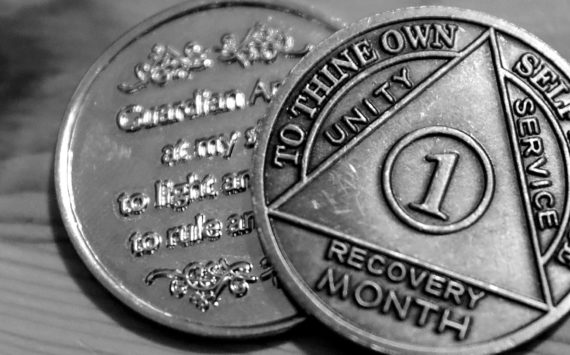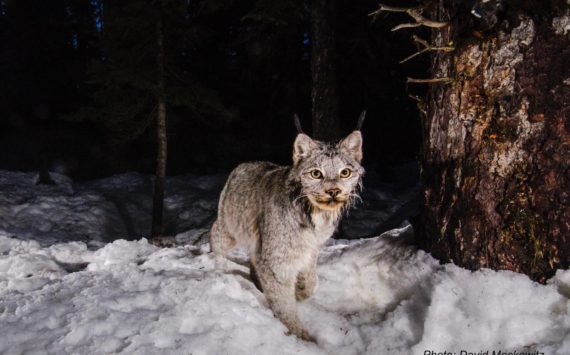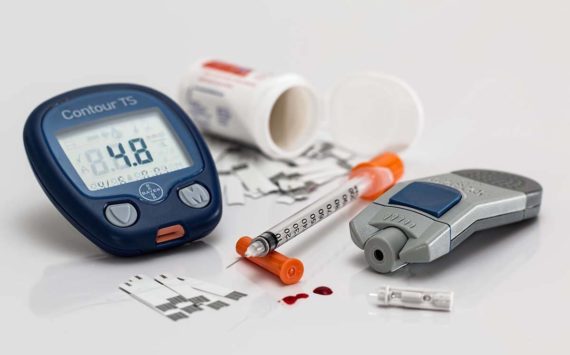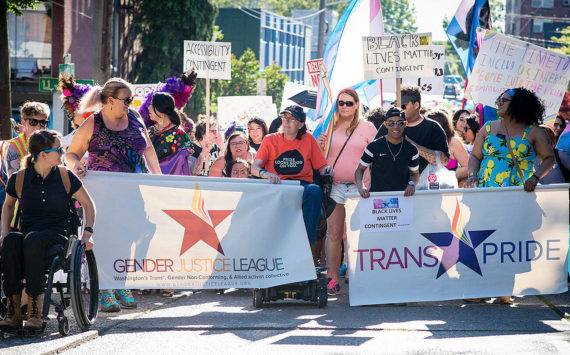With the U.S. Supreme Court recently overturning the landmark Roe v. Wade ruling, which protects a person’s right to choose to have an abortion, the Northwest Abortion Access Fund (NWAAF) is already feeling the added pressure.
NWAAF is an organization assisting people in Washington, Oregon, Alaska and Idaho with obtaining abortions. According to Kate Cole, NWAAF hotline lead volunteer, the organization gave out almost $1 million in direct funding for people to pay for abortions in 2021. However, Cole said, they were unable to fund every caller and they couldn’t fund every caller with as much as they needed.
“We’ve been doing this work for over two decades, and our entire purpose is to raise money from families, friends, concerned individuals and organizations that support reproductive justice, and to use that money to directly help people pay for the cost of abortion,” said Cole.
Cole said NWAAF assists with paying for flights, bus tickets, gas money, and lodging for those who are traveling long distances to obtain reproductive healthcare. Prior to the overturning of Roe v. Wade, the organization was primarily assisting people in Idaho.
“In Washington, Oregon and Alaska, state Medicaid — so insurance for people who are lower income — state Medicaid will pay for the full cost of an abortion,” said Cole, who explained how state insurance for people living in Idaho doesn’t cover abortion care.
“Now what we’re seeing is even though the decision only came out one week ago today, we’re already getting calls from people in states where abortion has been completely banned, so folks in Texas and Louisiana,” said Cole, adding that NWAAF is receiving calls from individuals living in states where abortion is soon to be banned and who have concerns about making an appointment which may be canceled any day.
As a result, people seeking abortions are finding first available appointments in Seattle and Portland, said Cole. When seeking abortion care, some primary care physicians may provide medical abortions such as abortion pills, however many individuals must seek out specialized abortion clinics, which become less abundant in rural areas.
“Even though I think we’re privileged to be in these states that are protecting abortion rights, I think this is going to impact access for people who live in Seattle, who live in Portland, where you would anticipate that it would be particularly easy to access,” said Cole, who said wait times for abortion appointments might increase in the future.
Shortly after the announcement of the falling of Roe v. Wade, many Washington and King County officials spoke out against the decision. Washington state Attorney General Bob Ferguson pledged to not remove anyone’s right to their own bodily autonomy, while promising to utilize every tool to defend the Reproductive Privacy Act.
Furthermore, King County Prosecuting Attorney Dan Satterberg pledged to not prosecute healthcare providers or patients who are performing or seeking abortions. On June 30, Gov. Jay Inslee announced that he would direct Washington State Patrol to refuse cooperation with abortion-related investigatory requests from states where access to abortion is banned or constrained.
“Washington is and will remain a sanctuary for any person seeking abortion care and services in our state, but we must act to protect our rights and our values,” Inslee wrote in his directive. “To that end, it is critical that our law enforcement agencies not cooperate in any manner with out-of-state investigation, prosecution, or other legal action based on another state’s law that is inconsistent with Washington’s protections of the right to choose abortion and provide abortion-related care.”
On the afternoon of July 5, King County Executive Dow Constantine signed an executive order preventing King County executive branch resources, to include personnel, from being utilized in investigations of out-of-state abortion related prosecutions. The signing of this executive order allows for the allocation of $1 million in emergency funding, half of which will go towards Public Health — Seattle & King County, with the other $500,000 going towards NWAAF.
“By preventing the use of King County resources in the prosecution of those who are pregnant and fleeing other states in search of safe abortion, we not only recognize this critical element of health care, but also send a message that we will not allow these backward, dangerous, and spiteful policies to further degrade people’s privacy and liberty,” said Constantine.
Constantine is working with King County Council Chair Claudia Balducci on an ordinance that would make the executive order permanent and applicable to all county departments.
Preparing for the influx while tackling long standing barriers
“We’re already hearing from folks in the southern U.S., who the earliest appointment that they were able to find was in Seattle or Portland, meaning they’re going to have to be flown across the country,” said Cole.
While Washington has little restrictions when it comes to obtaining an abortion, Cole noted some of the barriers pregnant Washingtonians face.
She explained that Apple Health covers abortion care and is easy to sign-up for, but is not accepted everywhere. For people who are further along in their pregnancies, such as into the second trimester, clinics become limited and won’t accept Apple Health.
Minors who are on their parent’s insurance sometimes require assistance from NWAAF. According to Cole, some of these minors are not eligible for Apple Health due to being covered under their parent’s insurance, but they can’t tell their families about the pregnancy due to safety reasons.
“Because of the Hyde amendment — the federal amendment that means no federal funding can pay for abortion — it means that people who are federal employees, their insurance will not cover abortion,” said Cole.
The Hyde Amendment requires that no federal dollars be used for abortions, except to save the life of the pregnant person, or if the pregnancy is the result of rape or incest. Cole said she’s heard from park rangers and federal bureaucrats who had unwanted pregnancies and needed abortions, only to find out that it would cost between $400 to $700 out of pocket.
“Folks who really wanted to be pregnant and find out they’ve got a fetal anomaly, and that the pregnancy will not go to term and want to end that pregnancy rather than carrying a fetus to term who is not actually going to be living and who have federal insurance, they’re much farther along and so those procedures can be many thousands of dollars, and they’re coming to us for help,” said Cole.
Cole acknowledged the benefits of some Washingtonians using Apple Health to pay for abortion costs, but stated that individuals still have to travel long distances and generally stay overnight for a procedure; on top of assisting individuals with travel and lodging costs, NWAAF assists with childcare coverage, said Cole.
“I think we’re fortunate in that we’ve been doing this work for decades and so we have this system already set up to support people in paying for procedures and logistics for helping support people in traveling long distances to get abortions,” said Cole. “Now, it’s really a matter of scaling up those operations and the biggest thing we need in order to do that is money.”
According to Cole, NWAAF has seen an outpouring of support with the amount of volunteers they have — more than they currently know what to do with. She said generating funds and increasing donations is the organization’s biggest goal at this time, due to the cost of flying more individuals across the country to access basic healthcare.
To become involved with supporting reproductive rights and access, Cole recommends donating if feasible and spreading awareness regarding the legalization of abortion in the United States, as well as resource sharing. With many abortion clinics closing across the nation, it will become more difficult for people who need abortions to find out about the resources that will assist them with getting abortions, said Cole.
“Prior to the falling, the vast majority of people who got help from us found out about us because they were referred to us by a clinic,” said Cole.
Like many people right now, Cole said she feels sad and scared for those who will have to experience forced pregnancy and forced childbearing.
“I also think about all of the many callers I’ve spoken to who’ve had planned pregnancies and desperately wanted children and found out, often late into their pregnancy, that they had a severe fetal anomaly,” said Cole. “The idea that those people will now not only be faced with exponent costs, but will be faced either with complete inability to access the care to end that pregnancy, or will have to travel very long distances to places far away from home in order to do that is just also very heartbreaking.”
While coping with feelings of sadness, fear and heartbreak, Cole said she is grateful to be volunteering with NWAAF.
“I know so many people right now are feeling so helpless, and I just feel really privileged and fortunate to be tapped in and doing this work right now, and feeling like I’m making some tiny bit of difference and knowing that we’ve been helping people access the basic healthcare for decades prior,” Cole said. “And we are going to keep doing that.”
